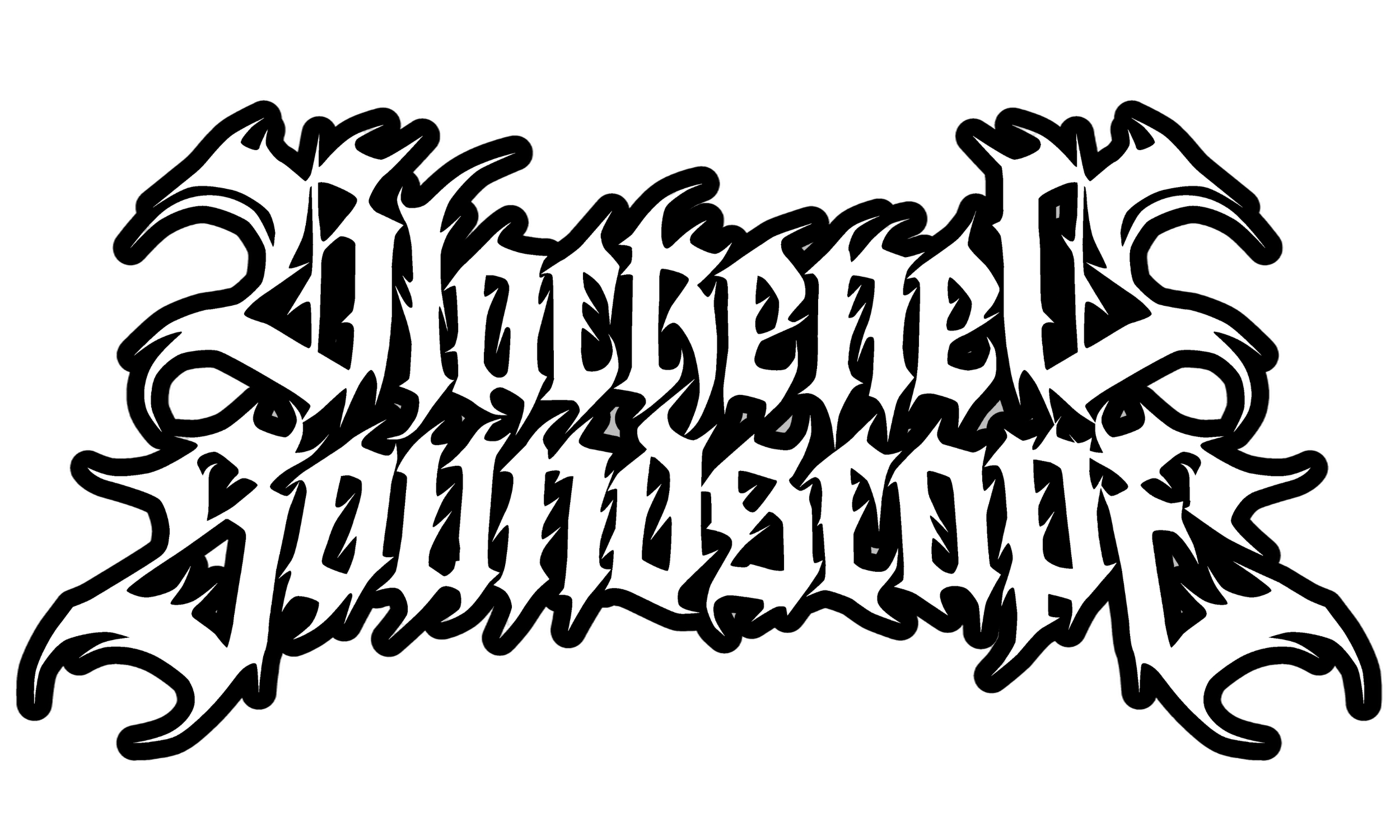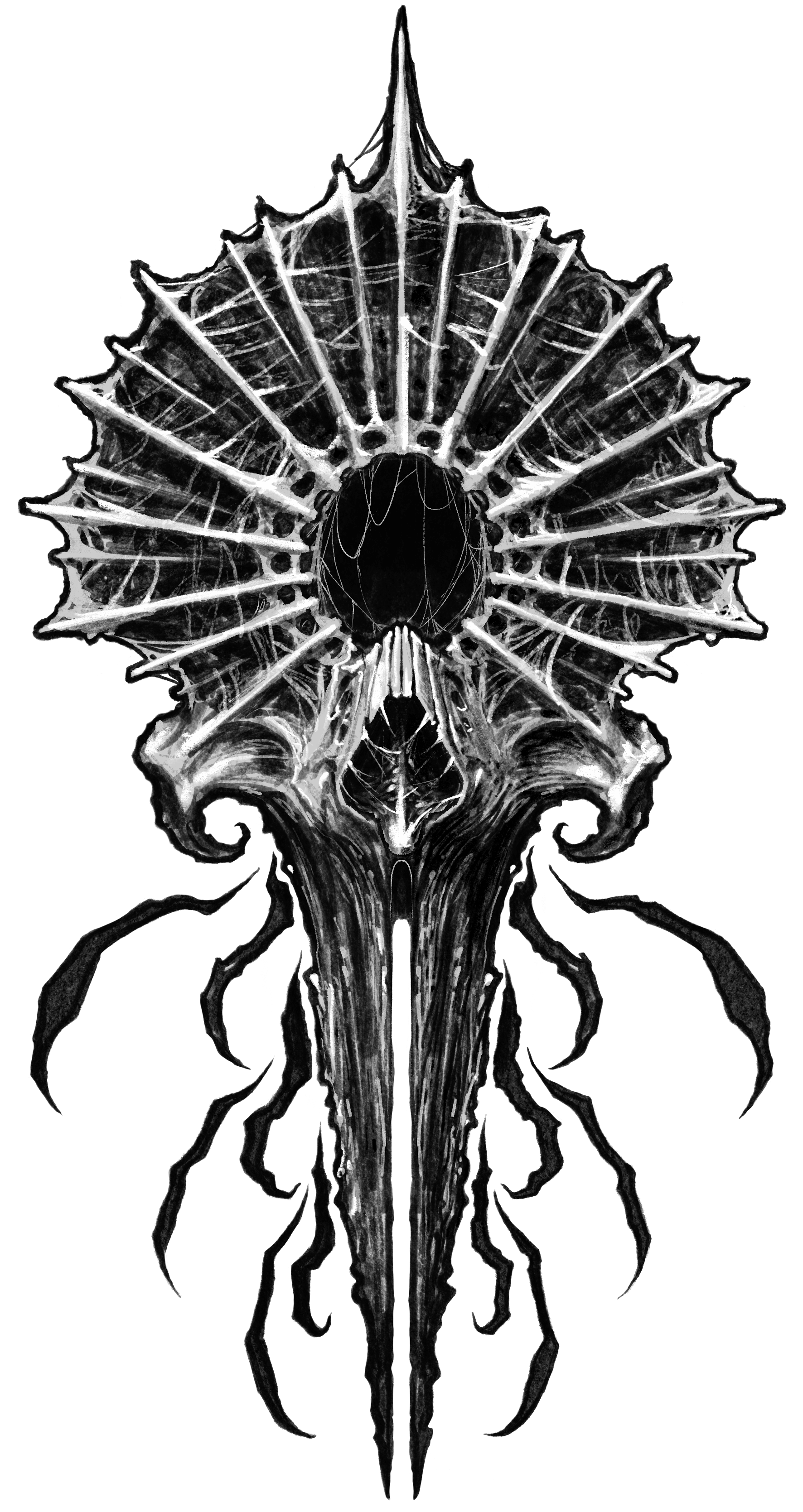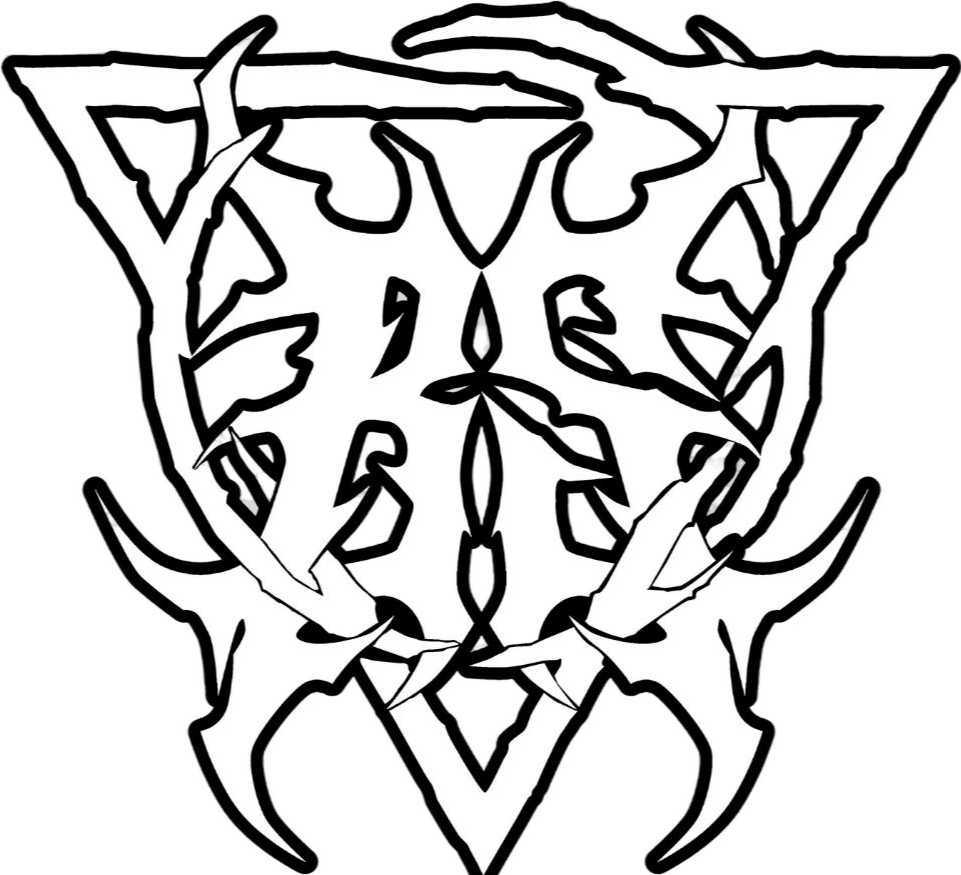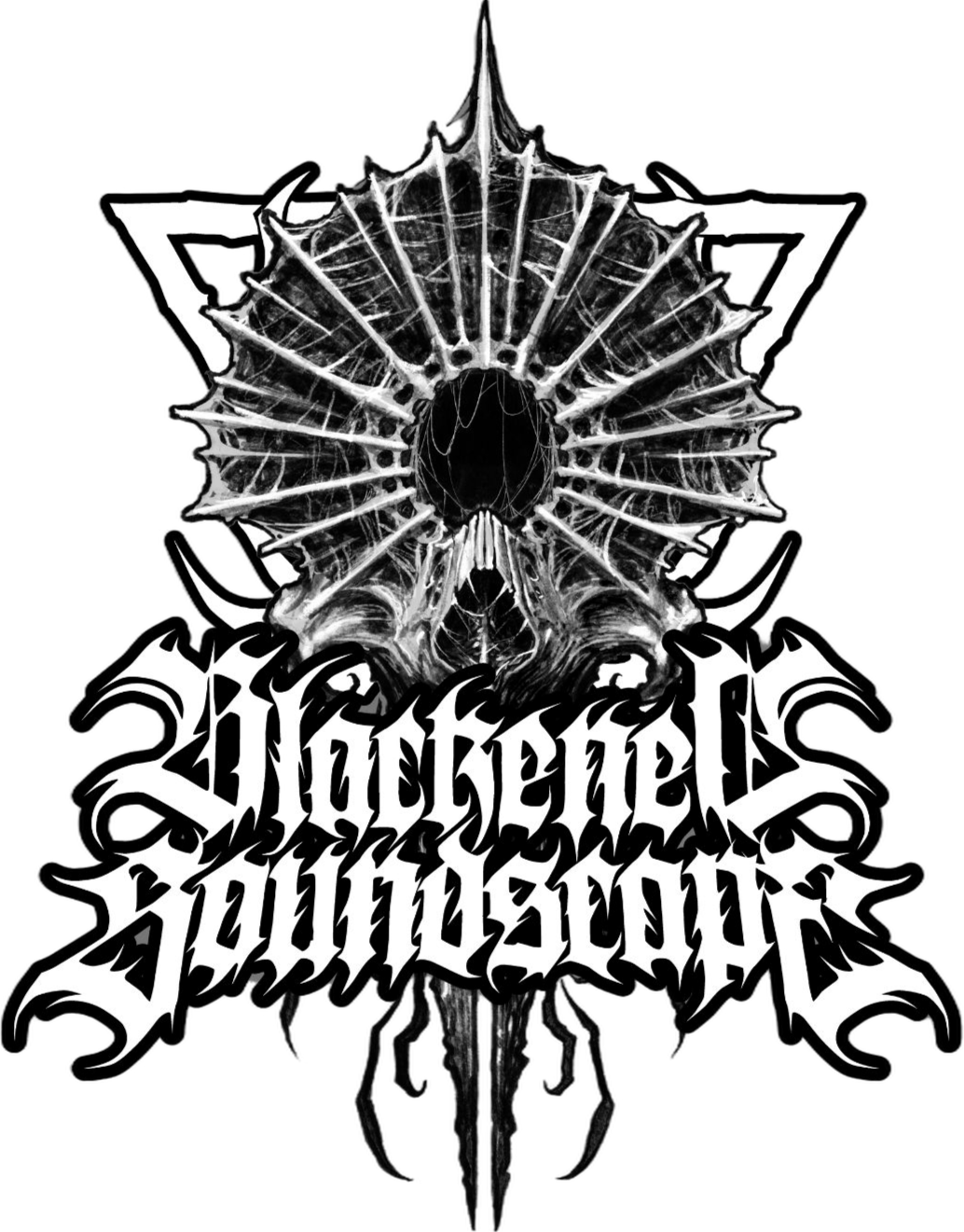Withered Land, the one-woman symphonic black metal project from Belarus led by Olga Kann, is nothing short of extraordinary. What truly grabs me is how Olga not only composes every riff, lyric, key, bass and instrumentation, but also creates the visual side — the album art, design and thematic imagery are all hers. Her latest, Hall of the Dead, pushes this even further with cinematic layers, folk elements, haunting atmospheres and brutal yet beautiful contrasts. For someone who values authenticity and total creative control, Withered Land is a rare gem — a project where every detail reflects one vision, and every aspect, from sound to cover, is crafted by a single artist who clearly lives and breathes her art.
I’ve always loved the name 'Withered Land.' Can you tell us what inspired you to start the project and what the name means to you?
Thanks. The name was not born at once, it was a rather active reflection, I had many ideas. It's always quite difficult for me to come up with a name for a project, because this is a very responsible task, huh. But then, after some time, the answer came as if immediately. From the lines of the beloved Tolkien:
"Cold be hand and heart and bone,
and cold be sleep under stone:
never more to wake on stony bed,
never, till the Sun fails and the Moon is dead.
In the black wind the stars shall die,
and still on gold here let them lie,
till the dark lord lifts his hand
over dead sea and withered land...".
It seemed to me that the devastated land is what just surrounds me. A metaphorically scorched earth, ready at the same time to be reborn in order to then wither again. At the same time, the lyrics are not closely tied to Tolkien's topic, but a little contain some references/inspiration from heroes and places from his books. In my lyrics, I try to convey the dualistic nature of a character or location. I try to show both the beautiful side and the unpleasant side. In general, I read a lot of different historical literature, war novels and the collective images of warriors come from there. The withered land is all that wars leave behind, at first it is watered with blood, then it dries up. And it will take many years for everything to return to normal (maybe). Even the most fertile field will wither up someday. Nothing can lasts forever.
You handle most instruments yourself—what challenges and freedoms does that bring to the composition process?
In fact, there are only advantages in terms of composition. If I'm inspired to make a track with a lot of ethnic instruments, I do just that. If I want to add more guitar arrangements, I know how to do that too. The more I explore different instruments and vocal techniques, the more diverse my instrumentation becomes. I try to make tracks that aren't carbon copies. In one track, you can hear a wicked/pagan sound, in another, symphonic black metal, something lyrically gothic, something melodic/death, or instrumental/cinematic stuff. Sometimes, due to the abundance of choice, I can get stuck in the throes of choice for a while. Also, of course, by spreading myself thin across so many instruments at once, I can't become an super-expert in any one thing. But I never had such a goal, to be a virtuoso in something; then I would have taken up sports for such achievements. What I'm really interested in is making varied, interesting music, and having a wide range of knowledge in this regard can help more than focusing on one instrument.
Your 2021 album, The Endless Journey, shows epic storytelling. Can you walk us through the concept behind it and tell us what it means?
This is already a story about a tragic fate. Our entire life is an endless journey with no beginning and no end, a cycle of suffering and aspirations. Along the way, we see beautiful stars, mountains, rivers, forests, and try to enjoy life and see the good in it. But eventually, everyone faces a house burned to the ground. This concept is fully developed on the second album. The debut still feels quite dreamy, with a hint of hope. The protagonist is a prisoner of his own rage. He will eventually find peace in the track “Revenge of the Fallen” of the second album.
Are there any tracks that were particularly difficult or rewarding to record?
In fact, there are no special tracks, as they were recorded in one breath, in similar conditions, in the same mood, following the same concept. In this regard, this album is very different from my new second album "Hall of the Dead". "The Endless Journey" is more homogeneous, maybe even "producer's" in some sense. It is quite sincere, but it cannot be compared with the sincerity and those experiences, searches, decisions that were carried out in the new album. The debut album is quite cold and it is not easy for me to return to it. On the one hand, I even wanted to release a new album as part of a new project, because these 2 albums seem conceptually different to me. But such thoughts often visit creators, as it seems to me, and you need to evaluate your creativity with a cool head, that it can be different. Need to learn to accept each of your works as a worthy step on the ladder of development.
I’m a massive fan of worlds such as Elder Scrolls, LOTR, WoW, and many other fantasy universes. I’ve noticed your lyrics touch on mythology, battles, and epic storytelling—how do you approach world-building in your songs, and are there specific myths, legends, or historical events that inspire you?
I read a lot of books and watch fantasy and historical films. Medieval mysticism and magic have fascinated me since early childhood. The theme of the fallen warrior, his journey from beginning to end, the bitter revelation at the end. And also revelations of death and the afterlife. Sometimes a song has specific stories. I'm inspired by both individual characters, fictional or historical, and by composite images. Hannibal, for example, with his character and will, simplicity and genius all rolled into one. He challenges an invincible force and accepts a glorious end. Or the romantic heroism of the knight Lancelot, shrouded in lyrical metaphors about his personality. Or contradictory Boromir from Lord of the Rings. Or the overly pathetic heroic image of Conan the Barbarian. Let's be honest, courageous and strong-willed men have always inspired my creativity. :) Some villains are no less appealing than those who fight for good. The key to any story is a strong character, drawn in the imagination. It's important to understand his motives, his feelings, to imagine the struggle he's waging, what he believes in, what he values and despises. In the Warcraft universe, I've always found the most appealing images of Arthas, who became the Lich King, and Iliddan. I've never sympathized with their opponents, for their morality was built solely on their own understanding of good and evil, which consisted of black and white shades. After all, it was these fighters for justice who brought this very evil into the world, who gave birth to it. Arthas's tragic story metaphorically intersects with mine in many ways; his heart turns to ice, never to be thawed. Christie Golden's book is difficult to read with indifferent curiosity. Every page echoes with a throbbing pain somewhere in the back of my mind. These metamorphoses, decisions, deprivations—that's the true tragedy of a warrior. The strongest of the strong. But the weakest in the most important way—blind rage, beyond which nothing can be seen.
And it seems there's always a difference between warriors—some fight for their lives without a choice (like gladiators), while others, out of boredom, wander like knights-errant in search of adventure. But they already have much in common. Their lives are always hanging by a thread, the dice are cast, the millstones of fate are set in motion. This is real poetry and it inspires the creation of paintings, music videos and music.
You’ve collaborated with artists like Giovanni Antonio Vigliotti and Astaroth Mercurius. How do collaborations influence your music, and how did their contributions help shape your latest release?
Any collaboration is exciting. I not only invite guests to my projects, but I also receive invitations from other projects. It's a kind of exchange of experience, a fresh perspective. I collaborated with Astaroth and Giovanni on a single between two albums. That track "My Last Autumn" turned out to be truly unforgettable, and again, I was able to bring a lot of new things to the table—incorporating doom metal, folk, and more. Giovanni is an amazing artist and has a truly captivating voice. Astaroth recorded the guitars in a unique way; I really like his playing style and sound. I've been constantly turning to him for help with the sound lately. And there are many surprises ahead.
I can imagine starting your own project, where you spearhead basically everything, can be really challenging. What advice would you give to someone wanting to start this journey, especially aspiring solo or multi-instrumental metal artists?
In fact, every coin has two sides. But each feature can be both a plus and a minus, depending on personal preferences. Such features: you are the only one making decisions, you are the only one receiving fame and hate, you are the only one investing both financially and emotionally in the project. At the same time, in many full-fledged groups the situation can be the same as in one-man projects, when 1 person decides everything, and the rest of the participants hang like dead weight. In terms of concerts, there are significant differences. For concerts, a one-man project needs to attract either session participants or acquaintances who are interested in playing for fun and keeping fit for free, or agree to work on a barter basis, help other musicians, and they help you. The last option is the most attractive and honest for me, and I chose it for myself. I also think that if you decide to do music seriously, even in the format of a lone leader, it is better not to neglect additional help. When you try to do everything alone - promote, shoot videos, make sound, art, etc. - it's easy to burn out and miss the main thing. Lately, I've been trying to delegate additional tasks as much as possible. Sometimes, entrust part of the work to the label (for example, I'm absolutely not interested in and it's difficult to sell merch living where I live now). Sometimes, entrust part of the work to the manager, fan club administrator, etc. I also save time by entrusting the recording of guitars and work with sound to my sound engineer (I prefer recording vocals, ethnic instruments, bass, and working with arrangements).
My advice is simple - do what you love and don't do what you don't love. Insincere art is the worst thing that can happen to you. Devote a lot of time to your health, physical and mental, rest a lot, so that you can work more productively later. This is an important guarantee for an artist if he wants to play for the long haul. If you encounter difficulties and doubts, do not be afraid to ask for help from the outside and from a processional at a higher level, do not get stuck on the same thing, learn to be flexible and make decisions based on real possibilities. It is important to understand that the world is overflowing with information noise and it is difficult to hear you, not because your work is somehow bad. But simply because it is physically difficult to break through this curtain of information overload. Assess yourself soberly, accept only constructive criticism and suggestions. Success is in consistency and diligence. Do not give up what you started after a while, support your creativity. It does not end immediately after the release of an album/track. You need to methodically remind about yourself, work with the audience (not necessarily on your own, you can use hired specialists).
What I love about this scene isn’t just the music, but also the artwork that accompanies the releases. I’ve always been a huge fan of album art—it’s a big part of why I love black metal. I have the utmost respect for solo artists who not only create the music but also craft their own visuals. How does designing the artwork influence your music? Do you approach art and songwriting as part of the same creative process, and how did you first get into art?
Thank you. For me, creating art and videos isn't just work; it's truly part of the creative process. Who better than the artist to convey their vision? And it's great when you have the strength, skill, and time for it. I don't see anything wrong with delegating this task to someone else to free up more time for yourself. But for me, it's purely joyful, and it's part of the ritual, the creative process itself. The same goes for lyrics. I love writing; it's poetry within poetry. I also often make costumes for my videos, masks, crowns, various props, etc. It's just that when I feel I know how I want it to look and I can't find a ready-made version, I create my own. You may have noticed that the same antagonist figure appears in the videos. A sinister entity, a forest spirit. A kind of necromancer, an evil mage from The Elder Scrolls. His costume, as well as his mask, were entirely designed and made by me. It was a fascinating process, and I think it captured my vision well. The initial sketches included various options, and I even dreamed about some of them. Ultimately, I chose the one that suited me best.
Your next release, Hall of the Dead, has fans really excited. Can you tell us about the concept behind the album, what inspired it, and what listeners can expect from this new chapter of Withered Land?
This album contains stories of the souls of the departed, sharing their tales with visitor to the Hall of the Dead. Here, I return once again to the theme of death and the cycle of life's suffering, reflecting on fate, time, and the cycle of existence.
Here, I transcend genre and, although I gravitate toward black metal, allow myself to diversify the music with more lyrical elements. In the final track, I gather all the accumulated impressions of my exploration of life and death. And they are, of course, neutral, because there is no evil and no good, like the imposed morality of society. There is also no good or bad outcome. Ultimately, we are all a set of letters and numbers on cold, deaf stones. But we are also memory in our deeds. We are part of the universe, and each one is like the Absolute.
This is if we talk about the philosophical subtext of this work. Otherwise, without going into detail, it is made as a dark fantasy story. The main sources of inspiration are fantasy and dark fantasy games (TES, especially Skyrim, Elden Ring, Dark Souls, Warcraft, etc.). One of the tracks (All Dead, All Rotten) is traditionally dedicated to Tolkien (specifically, the Dead Marshes and their backstory). One of the tracks (Revenge of the Fallen) is inspired by the film "The Revenant," the one I mentioned as concluding the fate of the hero of the first album. Of course, all this is presented in a medieval mystical atmosphere with descriptions of nature (here, a predominantly winter atmosphere reigns).
There's a lot of blood here, you can see that in my videos too. There's a lot of majestic pathos and bitter sorrow. And this is again a story about how equal everyone is in the face of the millstone of life. Just imagine how a single castle can house different energies at the same time: feasting rich people, an arrogant king, a witty intriguer, romantic bard playing a lyre, thieves and paupers rotting in prison, an executioner sharpening his axe, and a jester dancing silly dances. All of them, by the way, will end up in damp soil. The only question is who is the hunter and who is the prey today.
Finally, looking back at everything you’ve created with Withered Land so far, what has been the most rewarding part of this journey, and what do you hope listeners take away from your music?
I've traveled this path at varying speeds and with varying revelations. The most valuable thing has been that I constantly see how my music helps so many people improve their moods and understand something for themselves; they give me unforgettable emotions and receive them in return. Creativity can and should be created, even if it seems useless—in fact, it can change a lot of things. For some, it means the world. And this is the legacy you leave behind. I appreciate everyone who has been, is, and will be with me on this path. There are many interesting things ahead; this journey has only just begun



